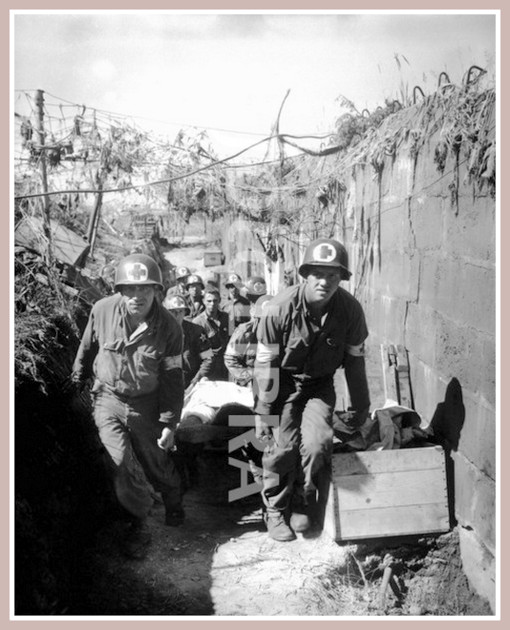710 MILES TO THE NEXT BATTLES
Before the trip the 2nd Infantry Division still have a few days to relax
From Staff Sargent Maurice Rice Diary
Sept 23, 1944 (Saturday) “Drew clothes and over shoes. We are getting ready to move again. I am going to try and find Vernon May (in the division artillery) tomorrow.”
Sept
24, 1944 (Sunday)
“I found Vernon May (my hometown friend) and we talked all day. Had
a lot of fun. Came home in a command car. I had 2 letters (from
home).”
Sept
25, 1944 (Monday) “Drew more clothes and
moved to Landerniew. We think we are going to the German front. (We)
left Camp McCoy (Wisconsin in the states) a year ago today.” [He has his dates of leaving Camp McCoy a few days early.]
Sept 26,
1944 (Tuesday)
“Stayed all night and drew more clothes. Can’t write any mail.
(We) leave tomorrow night.”
Sept.
27, 1944 (Wednesday) “We turned in our
duffel bags. We are getting on a train tonight. It is still raining.
We drew C and K rations.”
Sept
28, 1944 (Thursday)
“We loaded on a train and rode all night and day. It sure is
cramped. We had hot coffee.”
Sept
29, 1944 (Friday)
“We passed through the outskirts of Paris. (While sleeping on the
train) everybody stepped in my face last night. It is a pretty moon.”
Sept
30, 1944 (Saturday) “We rode all
morning. Got to Longuyon almost on the Belgian border. We hiked three
miles with double blanket rolls mostly uphill. We bivouacked in the
field. (We have) no water. We leave tomorrow for a 108 mile trip.”
Glynn Raby Jr shared this week with me his memories of those days.
After BREST fell, we left the
City and relocated to near Landerneau where we spent about a week while we rested, re-equipped, etc. We started on a 4 day trip on September 27th to nearby St. Vith, Belgium that was near the
German border. Part of the Division traveled on trains in the WWI
famous type "forty & eight." (40 men and 8 horses) freight
cars. I think there were less than the 40 men to a car (and no
horses). The rest of us were fortunate to travel in the Division
vehicles.
[Those of us lucky enough to ride in the Division
vehicles on] our 1st day we went from Landerneau to St. Albin, next
day to Chateauneuf, 3rd day to St. Quentin and 4th day to Schoenberg,
Belgium. [Those on trains] spent a lot of time just sitting in railroad yards. I didn't see any of them the entire 4 days. I was
glad to be in a jeep.
From there, we took over the
defensive area from the 4th ID.
[I have a feeling Glynn Raby Jr "restful" 710 mile trip will be made up with the coming battles.]
|
October
1, 1944 (Sunday) “It is raining all day.
We rode in trucks and got lost in Luxembourg from the convoy. We
stopped in Belgium 2,000 yards from the German border.”
October
2, 1944 (Monday) “We bivouacked in the
forest. It is still raining. (1st Battalion HQ says) We can take
anything we want to from the Germans (prisoners).” (because they do
the same to American prisoners)
October
3, 1944 (Tuesday) “I wrote one letter
to Vicky. Everyone is out of cigarettes. It is still raining. I got a
bad cold. (We) killed a cow (to eat).”
October
4, 1944 (Wednesday) “We hiked 10 miles (and entered
Germany). We went into the Siegfried Line near Prum. Built six man
(large fox) holes with fire places. No cigarettes.”
 |
| Battery B was my uncle's 105mm howitzer group |
For those who would like to know more about the "Forty and Eights trains" history, I have given you some information below for your reading.
 |
| https://www.skylighters.org/encyclopedia/fortyandeight.html |





























